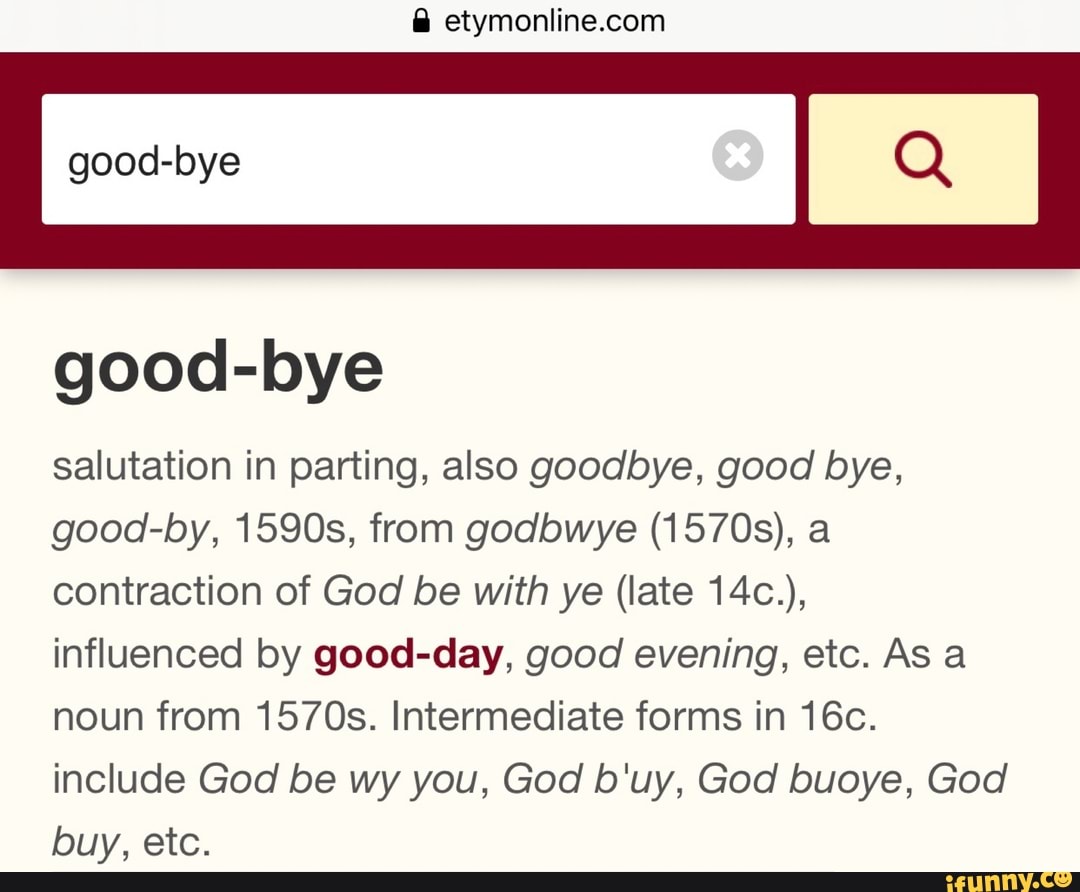The word goodbye is a combination or contraction of god be with you

The Fascinating Origin of the Word “Goodbye”

The English language is rich with words that have intriguing etymologies, and one such word is “goodbye.” Most of us use this everyday term without giving much thought to its origin. However, did you know that “goodbye” is actually a contraction of the phrase “God be with you”? In this article, we will explore the history and evolution of this widely used word.
The Birth of “Goodbye”
The phrase “God be with you” was commonly used in English-speaking countries as a farewell expression since the late 16th century. Over time, the phrase underwent a transformation through the process of linguistic contraction, simplifying it into the word we now know as “goodbye.”
The Contraction Process
A contraction, in grammar and linguistics, refers to the shortening of a word or phrase. In the case of “goodbye,” the contraction omitted the middle syllables of “God be with you,” retaining only the first and last syllables. This reduction simplified the phrase, making it easier to say and write.
Widespread Usage
As time progressed, “goodbye” gained widespread usage and became the dominant farewell expression in the English language. Its appeal lies in its simplicity and efficiency. Unlike the original phrase, “goodbye” is concise and easy to remember, making it suitable for everyday conversations.
Cultural Impact

“Goodbye” has transcended mere linguistic usage and plays a significant role in cultural exchanges. It has become an integral part of various social interactions, from bidding farewell to loved ones to concluding business meetings. Its all-encompassing nature allows it to be universally understood and accepted across different communities and languages.
Conclusion
In conclusion, the word “goodbye” evolved from the contraction of “God be with you.” This linguistic transformation streamlined the farewell phrase, making it more accessible and widely used. Today, “goodbye” remains an integral part of our daily lives, serving as a universal way to bid adieu. Its historical significance and cultural impact make it a truly fascinating word to contemplate.
Source: Lexico
Tags
Share
Table Of Contents
Related Posts
Quick Links
Legal Stuff

